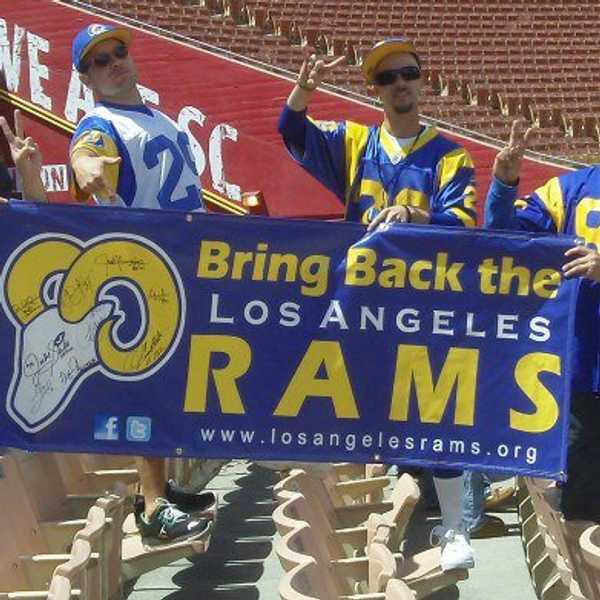What will this generation and others afterward say about the year 2016? How will history remember this brief, 365-day period in the midst of the new millennium? After all is said and done, I can only imagine that even the slightest memory of this year will be one of sorrow. To most, 2016 has been overshadowed by the staggering number of celebrity deaths. Already, as we have now entered the month of June and the midway point of 2016, the rate at which so many public icons have been dropping like flies is almost unprecedented. Yet, while the world is still grieving the loss of such greats as David Bowie, Alan Rickman, Nancy Reagan, Frank Sinatra, Jr., Merle Haggard, and Prince, this infamous ‘year of death’ continues to take away other famous embodiments of the generations from the late-twentieth century to now. Friday, June 3, however, marked a very solemn farewell to a man who truly holds merit for being widely recognized as “The Greatest”.
Muhammad Ali was so much more than the champion and role model that the athletes of his time still look up to. Beyond the sports world, Ali was an iron-willed human being who fought and withstood challenges of all sorts throughout his 74 years of life. However, it was during the height of the Civil Rights Movement where Ali’s reputation outside his boxing career stood out at the forefront of respect and inspiration from around the world. Alongside his revered contemporaries Martin Luther King, Jr. and Malcolm X, Ali defied the injustices of discrimination imposed in his own country at the expense of his own people’s suffering. Most of this new generation will be too young to have witnessed the proudest moments of Ali’s glory days in the ring. Few in this day and age can reminisce about when he made international headlines from the streets of Rome where he won his first-ever gold medal in the 1960 Summer Olympics at the age of 18, or his iconic knockout of fellow heavyweight Sonny Liston in 1965, or his legendary three-match showdown with heavyweight archrival Joe Frazier between 1971 and 1975. Far from his battle for greatness in the athletic field, Ali’s struggle through the most difficult times in his life was what truly molded him into the gift he has become to the world.
Though I do not regularly watch sports, as someone who is interested in history I have always viewed Muhammad Ali as a distinguished symbol of perseverance in the face of overwhelming adversity. His steadfastness and devotion to achieving something bigger than himself are qualities that make him worthy of going down in history alongside other conspicuous figures who share Ali’s fortitude, such as George Washington, Winston Churchill, and Nelson Mandela. However, there is, to my mind, one man who deserves recognition as an equal in charisma and talent to The Greatest. The legacy of the man in question predates not only this generation, but the entire previous millennium – a military commander from the ancient North African civilization of Carthage, he is known by none other than Hannibal Barca.
Apart from the average history buff, the real Hannibal is virtually unheard of in today’s generation. Before he was the famous serial killer, the name “Hannibal” signified a man whose entire life was influenced by war. Born into an illustrious military family led by his father, Hamilcar Barca, Hannibal spent the early years of his childhood on the battlefield. Hannibal’s life during the third century BC was encompassed by a longstanding military conflict between his homeland of Carthage, once a formidable city in present-day Tunisia, and the neighboring city of Rome. In the third century BC, Rome and Carthage were at odds with one another over the issue of which city should dominate the Mediterranean Sea, a vast stretch of water between North Africa and the Italian Peninsula and more importantly, the epicenter of trade in the Western world at that time. Ultimately, in 264 BC, both cities entered hostilities with each other in what became known as the “Punic Wars”. In the first war, after twenty-three years of bloody and arduous fighting, Carthage surrendered but was forced to give up much of her empire in the Mediterranean as well as dismantle her powerful navy. Rome’s harsh treatment of her defeated archrival, however, marked the beginning of Hannibal’s rise to stardom as one of the most brilliant generals of all time.
So how do the two greatest champions of their day match up? What may be surprising to those unfamiliar with the story of Hannibal is that, once they study him, there are more signs of compatibility between the two than once thought. Muhammad Ali’s favorite saying, “Float like a butterfly, sting like a bee”, for example, indirectly reflects on Hannibal’s style as a military tactician. Ali, when he said this, was implying that his technique for successful boxing relied on speed and mobility while being able to land a powerful and decisive attack on the opponent. This technique which made Ali world famous can be equated with Hannibal’s battlefield strategy against the Romans which won him many victories and to this day remains a focus of study in military academies on all corners of the globe. Beyond their achievements as fighters, what brings these extraordinary men so close together when they are so far apart in history?
Like Muhammad Ali, Hannibal was in many ways “The People’s Champion”. After Carthage was humiliated in the First Punic War, Hannibal accompanied his father and the Carthaginian army in a military expedition to conquer Spain. Hannibal eventually took charge of the army following his father’s death, after which Spain had been claimed a territory of Carthage. Hannibal’s vital role in the conquest led to a resurge in pride and prosperity for the Carthaginians, making him a national hero. The publicity of Hannibal amongst the people of Carthage continued to grow as he pushed further towards the long-anticipated second war with Rome, which finally kicked off after Hannibal captured and destroyed the hostile Spanish city of Saguntum, a Roman ally on Carthaginian soil. The Second Punic War between Rome and Carthage was to Hannibal what the Civil Rights Movement was to Muhammad Ali: a battle to undo the supremacy of one race of people over another. To quote Ali, “He who is not courageous enough to take risks will accomplish nothing in life.” As a military man, it was not uncommon for Hannibal to make bold decisions and to push himself and his soldiers beyond the limits of human endurance. When he took a massive army of men, horses, and elephants from Spain and across the western half of Europe to attack the Romans in Italy, the Carthaginian general showed the world the lengths he was willing to go to for the good and well-being of his people. The most extreme of these measures was his iconic crossing of the Alps, which to this day stands out as one of the most famous military maneuvers ever attempted in history. Even during the later years of the war, Hannibal continued to exemplify his perseverance to undo Roman supremacy by outfighting Rome’s legions in Italy for thirteen years whilst managing to keep his army together, despite being trapped behind enemy territory and completely isolated from Carthaginian supply lines in Spain. Though Carthage was eventually forced to surrender a second time, Hannibal’s war with Rome was far from over. A fugitive from Roman authorities after Carthage had made peace, Hannibal spent another twenty years of his life in exile while retreating from one neighboring country to the next that found itself at war with Rome. By the time he was eventually cornered by the Romans in the north of present-day Turkey and forced to commit suicide rather than be held prisoner by his worst enemy, Hannibal had been a soldier of Carthage for more than forty years. Though defeated in the field, the fighting spirit within the “Scourge of Rome” thrived on.
What can one say when comparing men like Hannibal Barca and Muhammad Ali? From my point of view, both of these men were certainly “the greatest” for their time and in their own right. Outside their respective professions, both fought to ensure a world where the oppressed are free from being treated unfairly by those who believe themselves racially superior. Both encountered rough patches while struggling to achieve their cause, but were encouraged by their heart and mind to keep going. In the end, both left the world too early; what should never be forgotten about them, though, is that they did not go down without a fight.





















